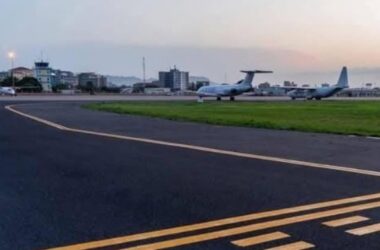
By Kei Emmanuel Duku
Sarah AtoJ Nyok, Acting Managing Director of Prestige Millers Limited, announced today the official launch of “Heba,” a new line of South Sudanese-made food products. According to Nyok, the company was founded with a vision “deeply rooted in the heart of South Sudan” and aims to be a key contributor to the nation’s economy.
“As Prestige Millers Limited, we are South Sudanese and we are making South Sudanese products,” Nyok stated at the launch event. She described the country as a “very rich country with so much resources, so much heritage that needs to be exploited,” and positioned the company’s initiative as a call for all local institutions to contribute to the economy through production.
The launch of Heba, which is a reminder and a call for other local initiatives, is aimed at closing the gap between South Sudanese farmers and families. The company’s goal is to empower rural cooperatives to build resilient supply chains that strengthen both the people and the economy.
Prestige Millers’ vision is to become not only South Sudan’s number one but also “Africa’s most trusted food manufacturer, setting the standard for premium quality, nutrition, resilience and sustainable impact, improving lives and empowering communities across the region.”
Nyok detailed the mission of the brand, which is “to transform lives through consistent delivery of nutritious, affordable and locally produced food products, ensuring every household… has access to affordable and also high-quality nutrition while driving local industry growth from the ground.”
The new product line includes Heba fortified maize flour, available in 1 kg, 2 kgs, 5 kgs, 10 kgs, 25 kgs, and 50 kgs, as well as Heba wheat flour in the same sizes. The products are described as nutritious, reliable, and locally milled. Additionally, Heba sorghum is available in 25 kgs and 50 kgs.
Nyok confirmed the current production capacity for the Heba products: 500 metric tons of maize flour per day (equivalent to 1,000 bags of 50 kgs), 100 metric tons of wheat flour per day (2,000 of 50 kg bags), and 50 metric tons of sorghum per day (1,000 of the 50 kg bags).
Nyok highlighted that the products are “fortified with essential vitamins and minerals such as iron, zinc and vitamin A,” to improve nutritional value and combat hidden hunger. She also stressed the company’s commitment to strict food safety and aflatoxin control, with rigorous quality control protocols across every stage of production to ensure products are free from harmful contamination.
On the issue of pricing, Nyok noted that having a locally produced brand like Heba helps control prices for citizens, making food affordable and accessible at any time. She concluded by stating, “This is not just about wheat, maize or sorghum. This is about nation building. This is about contributing to our country’s production and the future.”
The Central Equatoria State (CES) Governor Rabi Mujung Emannuel also commented on the launch, commending Prestige Millers for addressing a fundamental human need. The governor acknowledged that the company is providing “essential, basic need that everybody, regardless of age, would have for him to survive.” He added that this effort strengthens the public-private partnership, as the company is providing a service the people also want from the government.
The Governor expressed his satisfaction with the company’s vision, mission, and focus on providing a variety of affordable products. He noted that the products appeared to be in line with national standards and wished the South Sudan Standard Bureau had been present to officially confirm that the products had been tested and were now fit for human consumption.
He also encouraged the company to continue to “preserve the quality” of its products, stating that “quality is above everything else.”
The CES Governor concluded by expressing his belief that through this kind of initiative, “we can combat poverty” and “raise the living standard of our people.” He stated that by installing this industry, the company is “enhancing food security” and demonstrating that “together we can” and “together we rise.”




